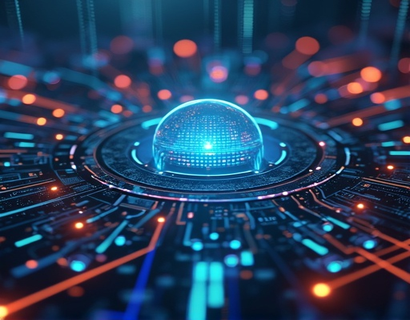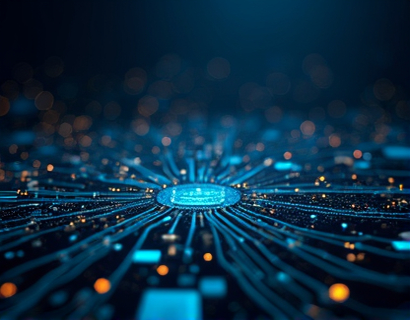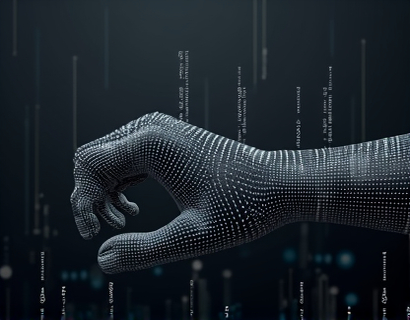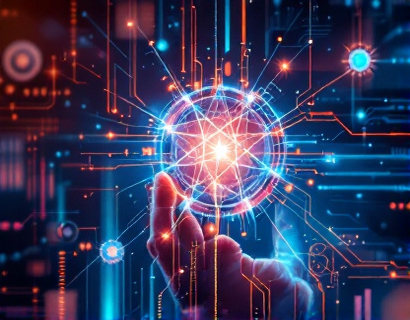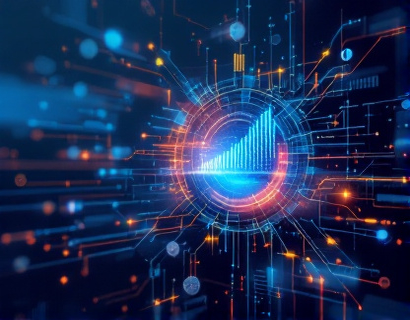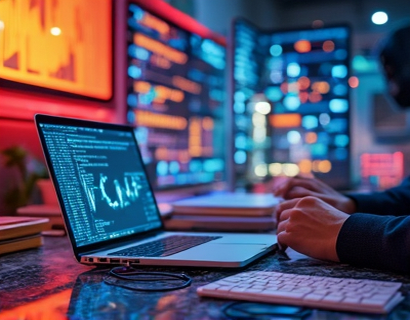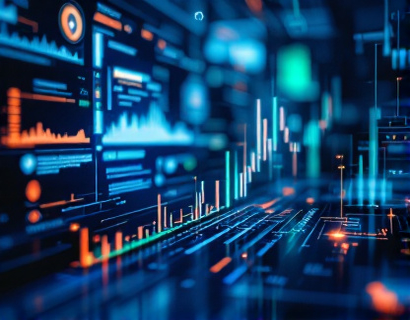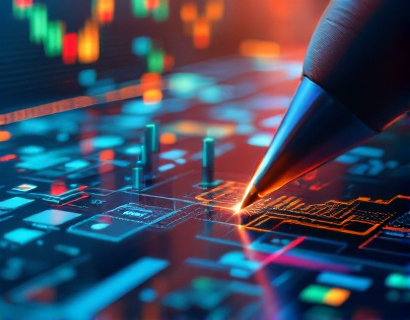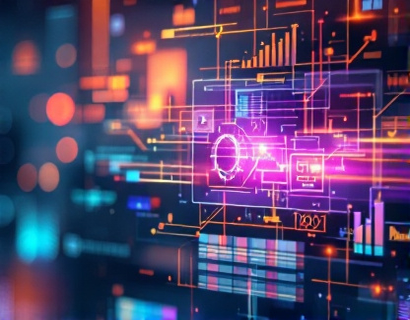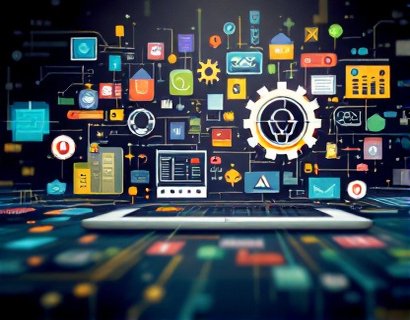Unlocking Digital Innovation: Leveraging AI and Crypto for Next-Gen Transformation
The intersection of artificial intelligence and cryptocurrency is giving birth to a new era of digital transformation. This fusion is not just about combining two powerful technologies but about creating a synergy that redefines how we interact with digital platforms, manage data, and secure transactions. For tech-savvy innovators and early adopters, this convergence offers a wealth of opportunities to enhance online presence and drive forward-thinking transformation. This article delves into the cutting-edge applications and services that leverage AI and cryptocurrency to create seamless and innovative solutions, perfect for those at the forefront of digital adoption.
The integration of AI and cryptocurrency is transforming the landscape of digital services. AI brings intelligence, automation, and predictive capabilities to the table, while cryptocurrency offers a decentralized, secure, and transparent way to conduct transactions. Together, they form a powerful duo that can revolutionize various sectors, from finance and healthcare to entertainment and beyond. This article explores how this convergence is shaping the future of online presence and driving innovation.
Enhanced Security through Blockchain and AI
One of the most significant benefits of combining AI and cryptocurrency is the enhanced security it provides. Blockchain technology, the backbone of cryptocurrency, ensures that transactions are immutable and transparent. When AI is integrated into blockchain systems, it adds an extra layer of security through advanced threat detection and anomaly recognition. AI algorithms can analyze patterns and identify potential security breaches in real-time, allowing for immediate action to be taken. This synergy ensures that digital assets and sensitive information are protected against cyber threats, giving users peace of mind as they navigate the online world.
For instance, AI-powered security solutions can monitor blockchain networks for unusual activity, such as unusual transaction patterns or unauthorized access attempts. Machine learning models can be trained to recognize normal behavior and flag any deviations, enabling proactive measures to prevent fraud and hacking. This level of security is crucial for businesses and individuals who rely on digital platforms for critical operations and store valuable data online.
Personalized User Experiences with AI
AI-driven personalization is another area where the fusion of AI and cryptocurrency is making a significant impact. By leveraging AI algorithms, platforms can analyze user behavior, preferences, and interactions to deliver highly personalized experiences. This is particularly relevant in the context of cryptocurrency, where users have diverse needs and preferences when it comes to managing their digital assets. AI can help tailor the user interface, recommend relevant services, and provide insights based on individual behavior.
For example, a cryptocurrency wallet app powered by AI can learn a user's spending habits and suggest optimal times for transactions to minimize fees. It can also offer personalized investment recommendations based on market trends and the user's risk tolerance. This level of personalization not only enhances user satisfaction but also increases engagement and loyalty to the platform.
Decentralized Applications and Smart Contracts
Decentralized applications (dApps) and smart contracts are at the forefront of the AI and cryptocurrency revolution. dApps are applications that run on a blockchain network, leveraging the decentralized nature of the technology to provide greater transparency and security. AI can enhance dApps by adding intelligent features that automate processes, predict outcomes, and optimize performance. Smart contracts, self-executing contracts with the terms directly written into code, can be further enhanced with AI to create more dynamic and adaptive agreements.
For instance, AI can be used to analyze data and automatically trigger actions within smart contracts. This can be particularly useful in supply chain management, where smart contracts can ensure that payments are made only when certain conditions are met, such as the arrival of goods at a specified location. AI can monitor real-time data and ensure that the contract executes seamlessly, reducing the need for intermediaries and increasing efficiency.
Fraud Detection and Compliance
Fraud detection and compliance are critical concerns in the digital economy, and the combination of AI and cryptocurrency offers robust solutions. AI algorithms can process vast amounts of data to identify patterns indicative of fraudulent activity. In the context of cryptocurrency, this is especially important given the anonymity and decentralized nature of many blockchain networks. AI can help detect money laundering, identity theft, and other illicit activities by analyzing transaction data and user behavior.
Moreover, AI can assist in ensuring compliance with regulatory requirements. Regulatory bodies are increasingly focusing on the cryptocurrency space, and platforms must adhere to various laws and standards. AI can help automate compliance checks, monitor transactions for suspicious activity, and generate reports to demonstrate adherence to regulations. This not only protects the platform and its users but also builds trust with regulators and the broader community.
Tokenized Assets and AI-Enhanced Marketplaces
The tokenization of assets is another exciting area where AI and cryptocurrency intersect. Tokenization involves representing real-world assets, such as real estate, art, or intellectual property, as digital tokens on a blockchain. AI can enhance this process by providing valuable insights and optimizing the marketplace. For example, AI can analyze market trends, predict asset values, and match buyers and sellers based on their preferences and investment goals.
AI-enhanced marketplaces can also streamline the buying and selling process by automating negotiations, verifying asset authenticity, and ensuring secure transactions. This creates a more efficient and accessible market for tokenized assets, opening up new opportunities for investors and creators alike. The combination of AI and cryptocurrency in this space is paving the way for a new era of digital ownership and investment.
Supply Chain Optimization
Supply chain management is another sector that stands to benefit greatly from the integration of AI and cryptocurrency. AI can optimize various aspects of the supply chain, from inventory management to logistics and demand forecasting. When combined with cryptocurrency, it offers a transparent and secure way to manage transactions and track the movement of goods. Blockchain ensures that every step of the supply chain is recorded and verifiable, while AI can analyze this data to identify bottlenecks and inefficiencies.
For instance, AI can predict demand for certain products and adjust inventory levels accordingly, reducing waste and ensuring that products are available when needed. Cryptocurrency can facilitate seamless and secure payments between parties in the supply chain, eliminating the need for intermediaries and reducing transaction costs. This synergy not only improves operational efficiency but also enhances trust and transparency throughout the supply chain.
Healthcare and AI-Driven Medical Solutions
The healthcare industry is another area where the combination of AI and cryptocurrency is making a significant impact. AI can revolutionize healthcare by providing advanced diagnostic tools, personalized treatment plans, and efficient patient management systems. Cryptocurrency can play a role in securing patient data, facilitating secure and private transactions, and enabling decentralized health records.
For example, AI-powered diagnostic tools can analyze medical images and patient data to identify diseases at an early stage, improving treatment outcomes. Cryptocurrency can ensure that patient data is stored securely and that patients have control over who accesses their information. Smart contracts can be used to manage insurance claims and reimbursements, ensuring that processes are transparent and efficient. This integration is paving the way for a more patient-centric and efficient healthcare system.
Conclusion
The convergence of AI and cryptocurrency is unlocking a new era of digital innovation, offering advanced tools and services that enhance online presence and empower tech-savvy innovators. From enhanced security and personalized user experiences to decentralized applications and supply chain optimization, the potential applications are vast and transformative. As this technology continues to evolve, it is essential for businesses and individuals to stay informed and embrace these innovations to stay ahead in the digital landscape.



